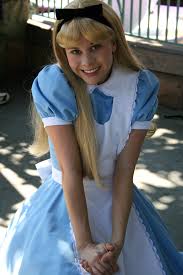
记忆方法
将“demure”与“de”联想到“减少”或“压抑”,想象一个人(“ure”)在社交场合中表现得低调、内向,减少了张扬的举止,从而呈现出一种“demure”的姿态。通过这种减少或压抑形象的记忆方法,帮助记忆“demure”一词的含义。
以上内容由AI生成, 仅供参考和借鉴
中文词源
demure 端庄
来自法语,of mature, 用来指成熟的女人,引申词义端庄。
英语词源
- demure
-
demure: [14] Etymologically, someone who is demure is quiet and settled, not agitated. The word comes from demore, the past participle of Old French demorer ‘stay’ (source of English demur), and so semantically is a parallel formation to staid. One of its earliest recorded uses in English was actually to describe the sea as ‘calm’, and it was not until the late 17th century that its modern slightly pejorative connotations of coyness began to emerge.
=> demur - demure (adj.)
- late 14c. (early 14c. as a surname), from Old French meur "mature, fully grown, ripe," hence "discreet," from Latin maturus "mature" (see mature (v.)) [OED]. The de- in this word is of uncertain meaning. Or possibly from Anglo-French demuré (Old French demoré), past participle of demorer "stay," and influenced by meur [Barnhart]. Or from Old French de (bon) murs "of good manners," from murs (Modern French moeurs) [Klein].
权威例句
- 1. The luscious Miss Wharton gave me a demure but knowing smile.
- 性感迷人的沃顿小姐对我羞涩地会心一笑。
- 2. a demure young lady
- 娴静的年轻女士
- 3. She's very demure and sweet.
- 她非常娴静可爱。
- 4. There she was , grey - suited , sweet - faced , demure, but scowling.
- 她就在那里, 穿着灰色的衣服, 漂亮的脸上显得严肃而忧郁.
- 5. Rather pale she looked and Londony; and her blue eyes were demure.
- 她脸上带点苍白,而且十足伦敦派头; 兰眼睛显得很端庄.